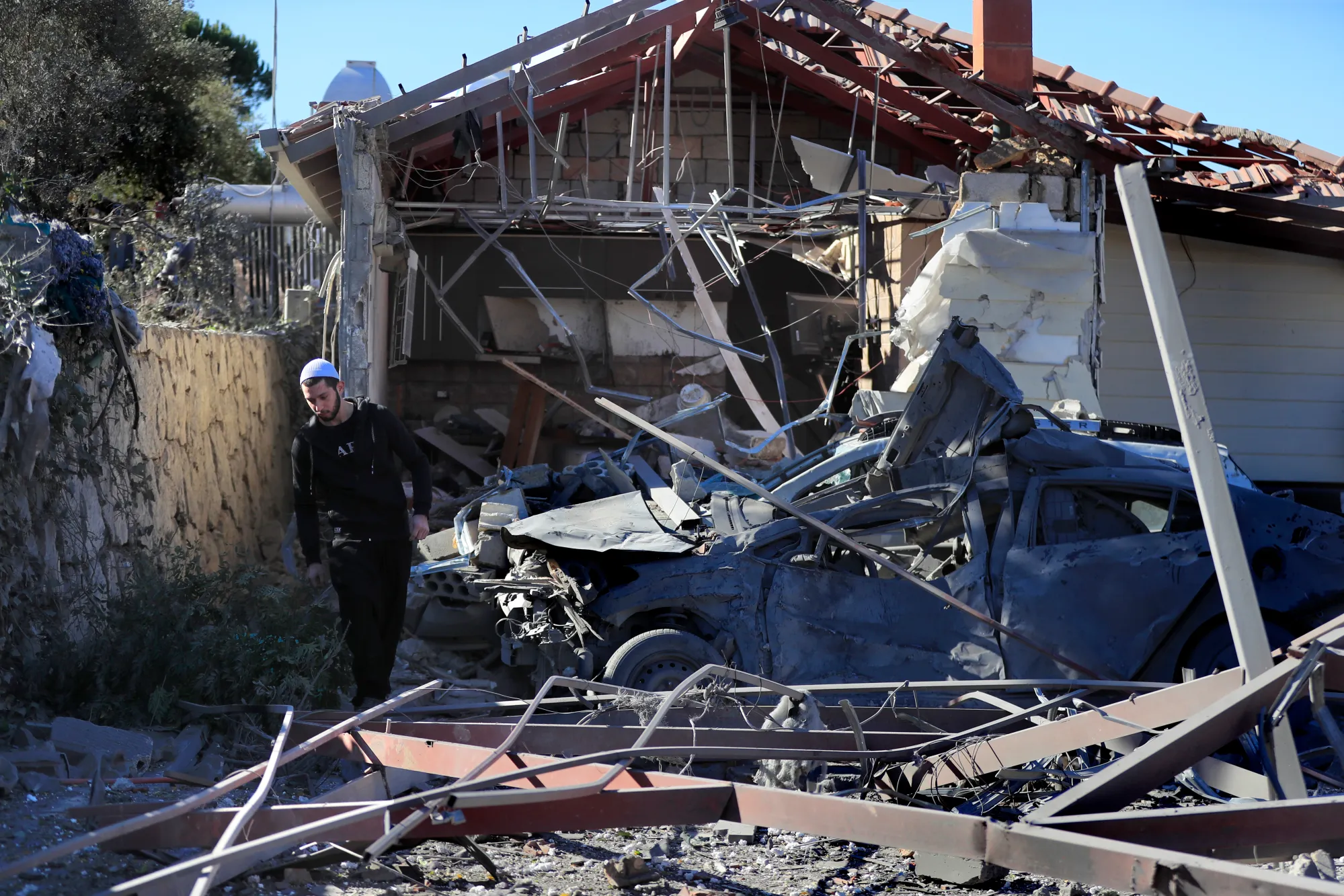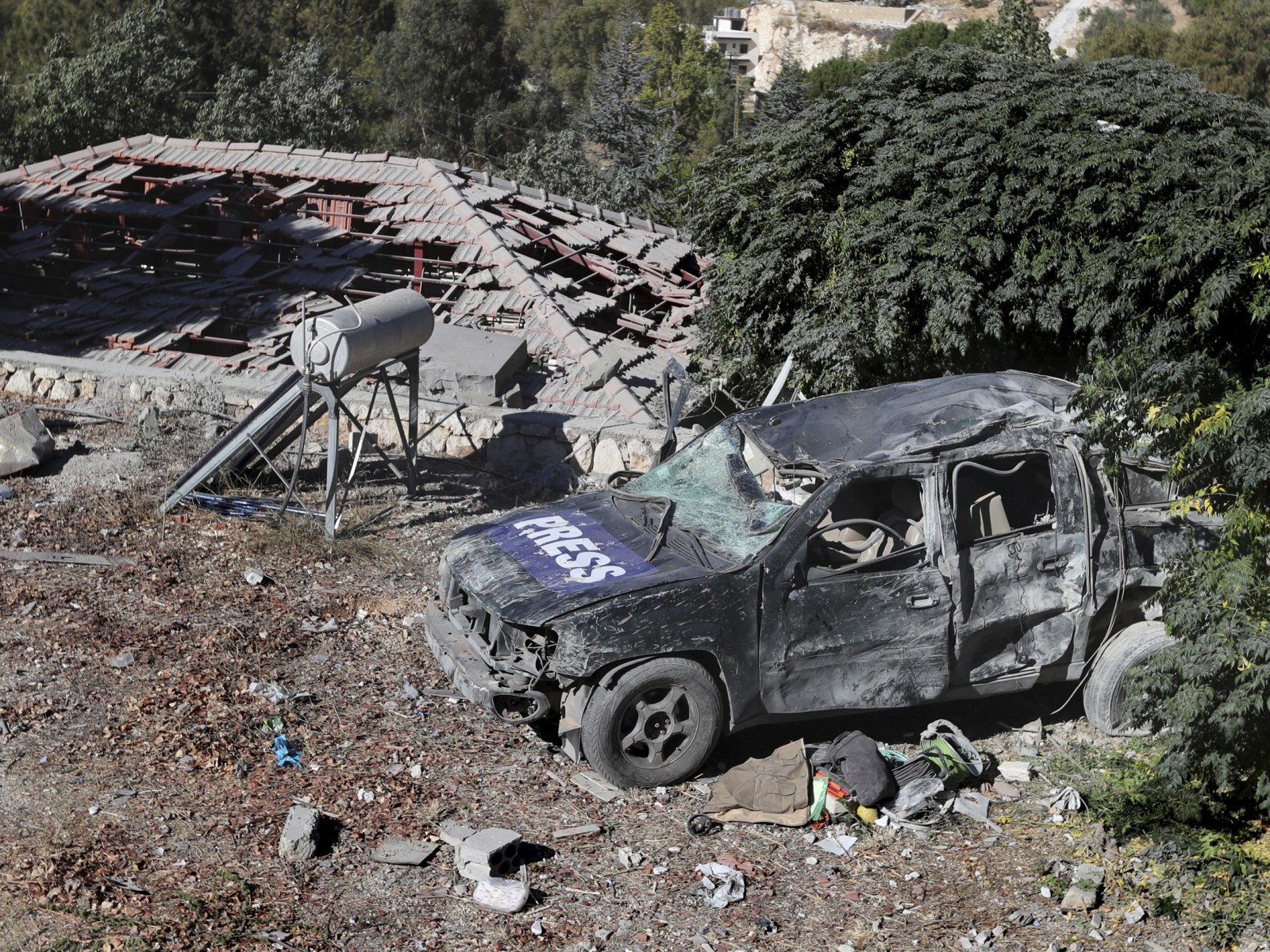Three Lebanese journalists were tragically killed in an Israeli airstrike targeting a guesthouse in Hasbaya, southeastern Lebanon, on Friday. The attack struck a compound that was known to house reporters from multiple media organizations, specifically Al-Manar and Al Mayadeen.
Witnesses reported that the strike occurred in the early hours of the morning, resulting in significant casualties and injuries. The Lebanese health ministry confirmed that three additional journalists were wounded in the blast.
The guesthouse was clearly marked as a media facility, with cars labeled “press” parked nearby, which has raised serious concerns about the intent behind the attack. Eyewitness accounts from journalists present during the airstrike indicate that all parties involved were aware of the presence of media personnel in the building.
Reports from Al-Jadeed TV showed the aftermath of the bombing, featuring a devastated structure with collapsed ceilings and floors covered in debris. These images highlight the level of destruction that occurred, leading to allegations that the airstrike was a deliberate act against journalists.

Airstrike Kills Three Lebanese Journalists in Marked Media Compound Amid Rising Lebanon-Israel Tensions
In response to the incident, Lebanon’s information minister condemned the attack, describing it as a “war crime” and asserting that it was a targeted assault against media professionals. The minister emphasized that the timing of the strike, occurring when journalists were resting, indicates a premeditated action.
This accusation adds to the growing concern regarding the safety of journalists operating in conflict zones, particularly as they continue to report on the unfolding situation in Lebanon and Israel.
The Israeli military claimed that the airstrike was aimed at a Hezbollah military structure, suggesting that journalists may have been collateral damage. They stated that the incident is under review but maintained that the presence of “terrorist infrastructure” poses inherent dangers.
Despite these claims, many journalists and Lebanese officials reject this explanation, arguing that the intentional targeting of a known media compound is a blatant violation of international law and a serious threat to press freedom.
The attack comes amid escalating tensions and military actions in Lebanon, where Israel has intensified its strikes as part of a broader conflict with Hezbollah. Since hostilities began on October 8, the death toll in Lebanon has risen dramatically, with thousands of casualties reported.
This incident underscores the perilous environment for journalists and highlights the urgent need for greater protection of media personnel in conflict areas, especially as they strive to report on the realities of war.











































